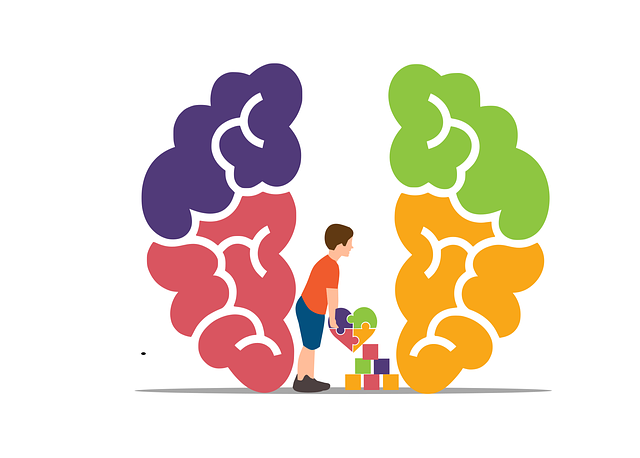Marketing a mental wellness app focused on Broomfield Functional Neurological Disorder Therapy (BFNDT) requires understanding the specific needs of individuals with neurological disorders and their caregivers. The strategy should emphasize BFNDT's benefits in emotional intelligence, stress management, and conflict resolution through personalized tools. Targeted content, case studies, and influencer partnerships can establish trust. Differentiating from general mental health apps by specializing in FND attracts users with unmet needs. Online platforms, social media ads targeting "Broomfield EFNT Therapy" and user testimonials are key. Measuring KPIs like engagement metrics and emotional well-being improvements through surveys ensures app effectiveness.
In today’s digital age, mental wellness apps are transforming lives, especially those seeking Broomfield Functional Neurological Disorder Therapy (EFNT). This article explores a comprehensive marketing strategy development guide for EFNT apps. We delve into understanding the unique needs of mental health app users, identifying target audiences, and defining unique selling points to stand out in a crowded market. Effective digital marketing strategies are unveiled, along with key performance indicators to measure success. By mastering these aspects, EFNT app developers can attract and retain users seeking evidence-based therapy.
- Understanding Mental Health App Marketing: Targeting Broomfield Functional Neurological Disorder Therapy
- Identifying the Target Audience for EFNT Apps
- Unique Selling Points (USPs) and Differentiation in the Mental Health App Market
- Effective Digital Marketing Strategies for Engaging Users with EFNT
- Measuring Success: Key Performance Indicators (KPIs) for Mental Wellness Apps
Understanding Mental Health App Marketing: Targeting Broomfield Functional Neurological Disorder Therapy

Marketing a mental wellness app, particularly one focused on Broomfield Functional Neurological Disorder Therapy (BFNDT), requires a nuanced approach. Understanding the target audience’s unique needs and challenges is paramount. BFNDT addresses complex neurological issues, demanding tailored strategies to engage potential users seeking alternative therapy options.
The marketing strategy should emphasize the app’s ability to enhance emotional intelligence—a key aspect of BFNDT—by offering personalized tools for stress management and conflict resolution techniques. Highlighting features that facilitate risk assessment for mental health professionals can also attract a specific niche audience interested in evidence-based interventions. Through targeted content creation, case studies showcasing successful outcomes, and partnerships with relevant communities or influencers, the app can establish itself as a trusted companion on the journey towards improved mental wellness.
Identifying the Target Audience for EFNT Apps

When developing marketing strategies for mental wellness apps, such as Broomfield Functional Neurological Disorder Therapy (EFNT) applications, identifying the target audience is a critical step. The primary focus should be on individuals who stand to benefit most from EFNT therapy, including those struggling with specific neurological disorders and their caregivers. This segment often includes people living with conditions like anxiety, depression, PTSD, or even chronic pain, who seek alternative or complementary treatments.
Understanding the unique needs and challenges of this demographic is key. Many individuals may have limited access to traditional therapy services or prefer more personalized, digital solutions for their mental health journeys. By tailoring marketing efforts to reach these specific users—through online platforms, social media campaigns, and partnerships with relevant support groups—the app can effectively showcase its potential for inner strength development, trauma support services, and risk assessment tools designed for mental health professionals.
Unique Selling Points (USPs) and Differentiation in the Mental Health App Market

In the competitive mental health app market, identifying unique selling points (USPs) is crucial for standing out. Apps focused on functional neurological disorder (FND) therapy, like Broomfield’s offerings, can differentiate themselves by specializing in a niche area often overlooked. By targeting specific symptoms and offering personalized treatments, these apps cater to a distinct audience with unmet needs. This specialization not only attracts users seeking specialized care but also fosters higher user engagement and retention compared to general mental health apps.
Furthermore, integrating effective conflict resolution techniques into the app’s features can enhance its appeal. Mental wellness podcast series production is another strategic approach to differentiate and educate users about FND. By providing valuable content through podcasts, the app establishes itself as an authority in the field, thereby attracting and retaining a dedicated user base interested in improving their mental health and understanding conditions like FND. This multi-faceted approach leverages both niche expertise and engaging multimedia content to carve out a unique position in the market.
Effective Digital Marketing Strategies for Engaging Users with EFNT

In today’s digital age, marketing mental wellness apps requires a strategic approach to engage users, especially those seeking Broomfield Functional Neurological Disorder (EFNT) Therapy. One effective method is leveraging online platforms and content that educates and empowers individuals on managing their mental health. Creating engaging blog posts, videos, or podcasts that discuss EFNT techniques, coping skills development, and personal success stories can attract a targeted audience. By sharing valuable insights and practical tips, the app gains trust and establishes itself as a reliable resource.
Additionally, utilizing social media platforms allows for direct engagement with potential users. Running targeted ads on popular networks with keywords like “Broomfield EFNT Therapy” or “Mental Wellness Apps” can reach individuals actively searching for solutions. Incorporating user testimonials and success stories in these campaigns further strengthens the app’s credibility. Moreover, focusing on burnout prevention and risk assessment for mental health professionals can set your app apart by catering to a specific need within the industry, ensuring long-term user engagement and satisfaction.
Measuring Success: Key Performance Indicators (KPIs) for Mental Wellness Apps

Measuring success for mental wellness apps is paramount to understanding their impact and effectiveness. Key Performance Indicators (KPIs) should be tailored to align with the app’s specific goals and target audience. For instance, a Broomfield Functional Neurological Disorder Therapy app might track user engagement metrics such as daily active users, retention rates over time, and completion rates of therapeutic modules. These numbers reveal how well the app is reaching and retaining its intended users.
Additionally, incorporating Empathy Building Strategies and Compassion Cultivation Practices within the app could lead to measuring user emotional well-being improvements through self-reported surveys or changes in affective state tracking. Monitoring progress in Self-Esteem Improvement might involve assessing pre- and post-app usage scores on specific self-esteem metrics. Such qualitative data provides insights into the app’s ability to foster positive mental health outcomes, ensuring that marketing efforts are not just driving downloads but also delivering tangible benefits to users’ lives.
In developing a marketing strategy for Broomfield Functional Neurological Disorder Therapy (EFNT) apps, understanding your audience and defining unique selling points are key. By identifying specific needs and pain points of individuals seeking EFNT support, app developers can tailor their messaging effectively. Using digital marketing strategies that engage users through targeted content, social media interactions, and influencer collaborations ensures a vibrant user base. Measuring success through relevant KPIs like user acquisition cost, retention rates, and session duration is crucial to refining the marketing approach over time. By focusing on these aspects, mental wellness app developers can successfully reach and assist those in need of EFNT therapies.














